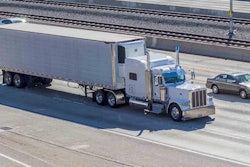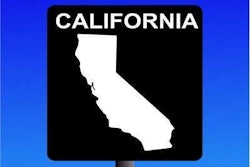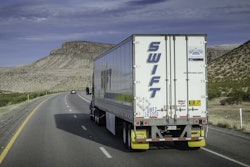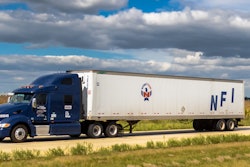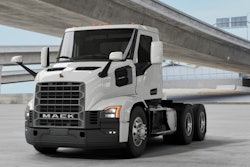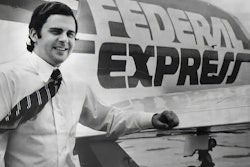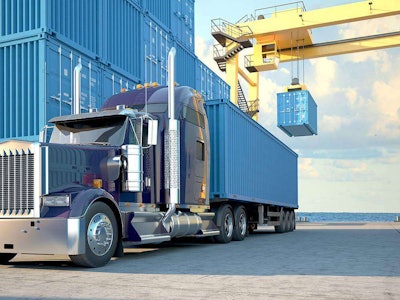
With an April ruling by the California Supreme Court presenting a chilling effect on carriers’ use of owner-operators in the state, fleets and single-truck owners have found at least one way to circumvent the ruling and attempt to continue business as usual, says Joe Rajkovacz, head of government affairs for the Western States Trucking Association.
The fix? Have previously single-truck operators leased to carriers obtain their own authority and become independent owner-operators, running freight for that carrier in a relationship with its brokerage, whether existing or newly formed.
“I am dealing with numerous owner-operators … and converting them to motor carriers,” says Rajkovacz. Though many of these instances are for port truck operators, it’s not isolated to drayage operations, says Rajkovacz, noting there’s been “a huge spike in new entrant [carriers]” in the state since the ruling.
Rajkovacz and WSTA contend that the ruling, coming in the case of Dynamex v. Superior Court, effectively bars operators from leasing on to carriers, as is a highly common practice in trucking industry operations nationwide.
The Dynamex ruling by the California Supreme Court established the so-called ABC test as the state’s new standard for determining whether a worker is an independent contractor or an employee. In the case of trucking, this means a leased owner-operator or a company driver.
The B prong of the ABC test states that if a worker’s tasks are part of the business’s core functions, then that worker should be classified as an employee, not an independent contractor. For trucking, this means that if a fleet, whose core business is for-hire trucking, gives loads to an owner-operator, then the owner-operator should be classified as an employee. WSTA has sued California hoping to see the ruling overturned, due to its potential widespread impact on the use of owner-operators by fleets in California.
Rajkovacz says the judge overseeing the suit, Judge Morrison England of the U.S. District Court in Northern California, said during oral arguments that the California Supreme Court’s ABC test ruling mandates that all owner-operators be classified as company employees — which would be a damaging take on the traditional owner-operator model.
The work-around of carriers setting up brokerages separate from their trucking operations and of leased owner-operators converting to independents offers a resolution, but not an ideal one, says Rajkovacz. FMCSA resources are already stretched, Rajkovacz notes, in their ability to conduct timely new entrant audits, as required for every new carrier authority in the nation, to say nothing of the agency’s ability to actually review and rate carriers. Few owner-operators ever receive a safety rating in today’s compliance regime.
An influx of independents under this work-around would only further exacerbate the issue.
WSTA hopes long-term for the California legislature to act and correct the court’s interpretation. In the meantime, says Rajkovacz, the group hopes that the U.S. District Court will issue an injunction against the decision while longer-term strategies play out.



